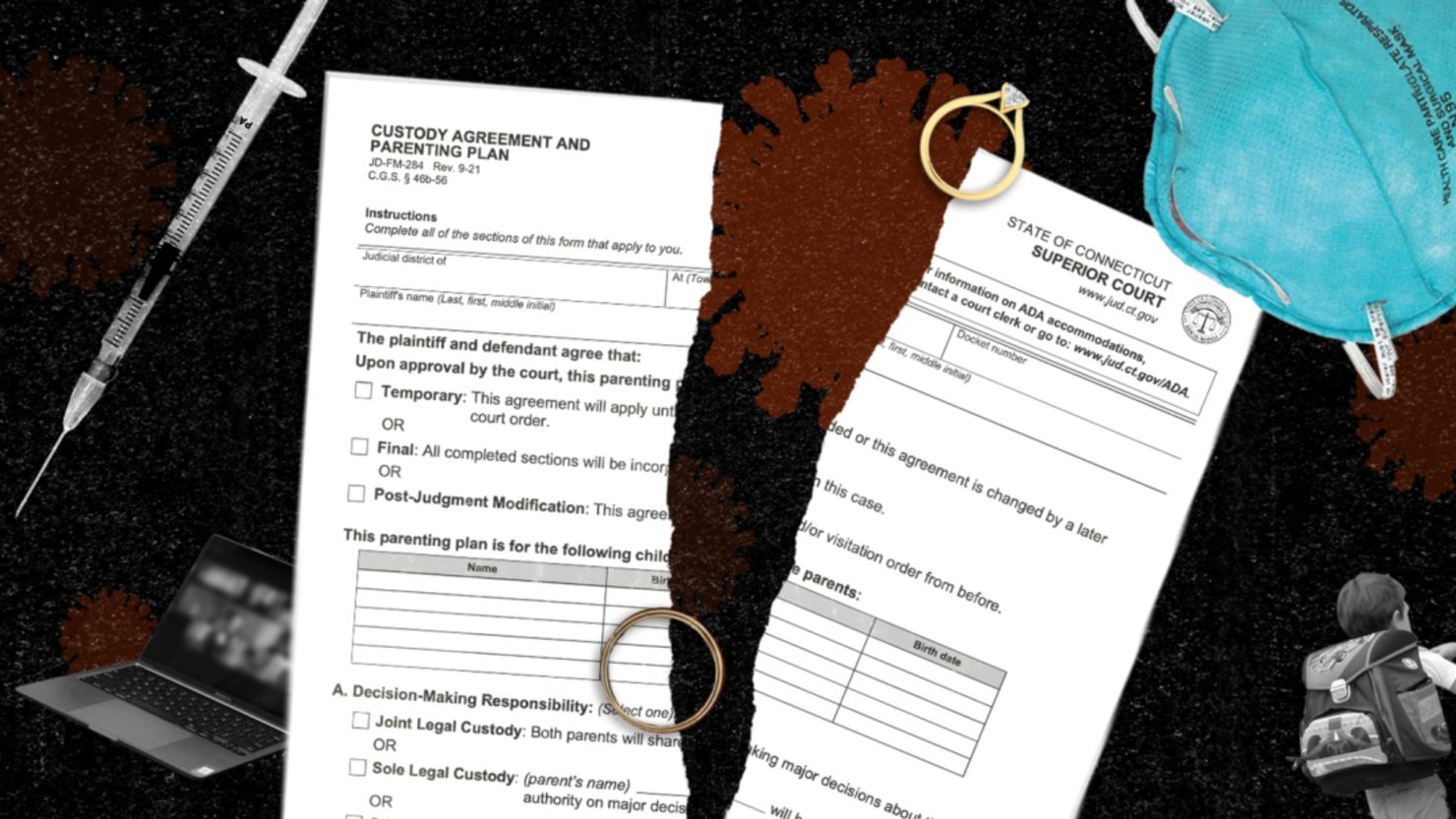Denise thought her divorce was behind her. Then the pandemic hit.
And it wasn’t long before the custody case she thought was closed wasn’t anymore.
Covid-19 is a daily reality millions of divorced and divorcing parents across the country are struggling to navigate. And divorce lawyers say for many families, things are only getting more complicated.
Issues like masks, remote schooling and travel were already causing turmoil for divorced parents with different views on covid safety. Now parents are increasingly sparring over vaccines, too. Long-dormant cases are back on attorneys’ desks, and sometimes landing back in court.
Denise, a mom of two boys who asked to be identified only by her first name to protect her children, ended up having to go back to court after she lost her job and landed a new one out of state. The issue would never have come up, she says, if Covid hadn’t made her local job market in Michigan dry up, forcing her to cast a wider net in her job search.
At a time when she wanted to celebrate finding the work she needed to keep her family afloat financially, worry overwhelmed her. What if she couldn’t make the move?
“I had this big knot in my stomach,” she says.
And she’s not alone. Divorce attorneys across the country told CNN the pandemic is having a major impact on their cases.
Patrick Baghdaserians has a formula he uses to describe how tough things are now for many of his divorced clients.
Take what you already know about all the polarizing debates and panicked parenting decisions of the pandemic.
And then, he says, “multiply that by 10.”
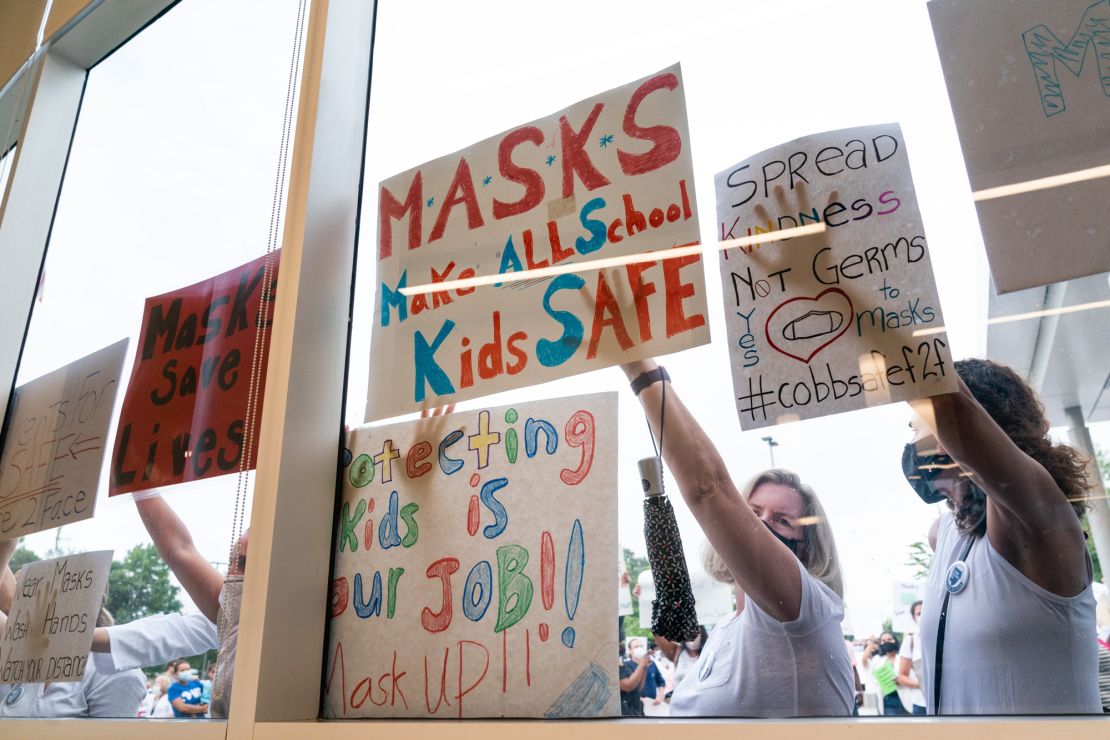
Because, the family law attorney in Pasadena, California, adds, “you’re going through that situation with an ex-spouse, or someone you share a child with who you’re no longer involved with.”
Some people with strong views about coronavirus safety can manage to avoid clashing with others who prefer a different approach, but many parents who share custody of children don’t have that option.
“Parents are in this terrible position, trying to do what they think is best for their kids, and then fighting with their estranged spouse to try to do what’s best for their kids,” says Ric Roane, a family law attorney in Grand Rapids, Michigan.
Covid is coming up in just about every aspect of custody cases, says Jessica Kitain, a family law attorney in Philadelphia. And lately, she says, the tensions have been intensifying.
“Everything’s changing. CDC guidelines are changing. Mandatory things are changing,” she says. “Most people in custody cases operate with a written agreement where terms are set, and they’re clear, and everyone knows what to do. Now that has become a moving target. We’re constantly coming up with new terms.”
Even some parents who used to see eye to eye, she says, are struggling to find common ground.
“Now all of the sudden they find themselves fighting, even though they’ve never had a custody battle before,” she says.
She fears sending her sons into danger
In the end, the court approved Denise’s out-of-state move and let her keep full custody of her children.
But now, more than a year later, Denise says she’s overwhelmed by another fear. Just before the holidays, she learned from a mutual acquaintance that her ex-husband isn’t vaccinated against Covid.
Even so, her attorney advised her that she still needed to send her kids to visit their father in Michigan as they’d previously agreed.
“To knowingly put your child in a situation you feel is dangerous is enough to tear your heart out. It’s not what you want to do. You are hardwired to protect your children. And to put your children in a situation you feel is not safe is very hard. But there was nothing I could do,” she says.
“It feels a little bit like turning my kids over to a burning building.”
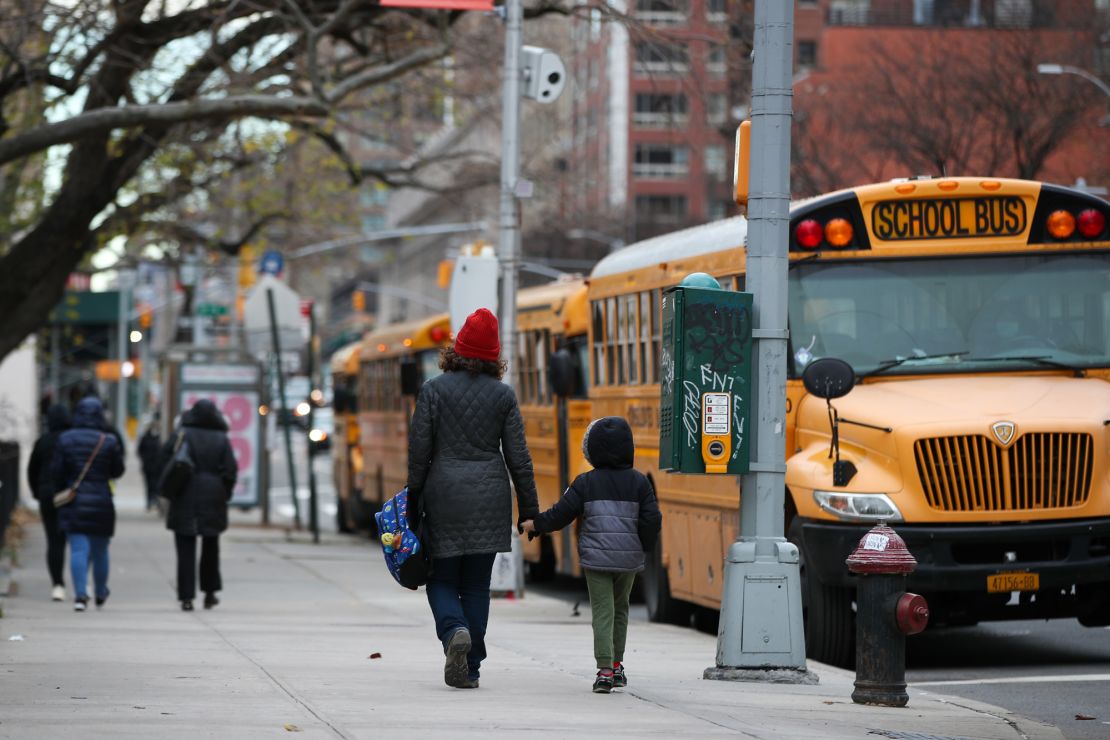
So far, she says, her kids haven’t gotten Covid. They’re scheduled to visit their father again for spring break. Denise says she’ll be on edge the whole time, but feels she has no choice. Her only solace: knowing her sons are both vaccinated.
“My only sense of comfort is what I have done to protect them,” she says, “because their father won’t do anything on his end.”
Some courts have made rulings on parents’ vaccination status
In Denise’s case, her lawyer told her that while there had been examples of judges in Michigan ruling in favor of parents who wanted their children to be vaccinated over the objections of another parent, there weren’t instances of judges forcing parents themselves to get Covid vaccines.
But in at least a few states, that issue is starting to come up.
In August, a judge in Cook County, Illinois, took away a mom’s child custody rights because she was unvaccinated, according to The Chicago Tribune. The judge rescinded the ruling a few weeks later.
In October, a New York Supreme Court judge found that a mother could require her ex-husband, who wasn’t vaccinated, to either get vaccinated or submit to Covid testing in order to spend time with his 3-year-old child.
“The danger of voluntarily remaining unvaccinated during access with a child while the COVID-19 virus remains a threat to children’s health and safety cannot be understated,” Justice Matthew F. Cooper said in his ruling.
Late last year, a judge in Los Angeles ordered an unvaccinated father to either get vaccinated or provide a statement from a medical doctor explaining why he couldn’t.
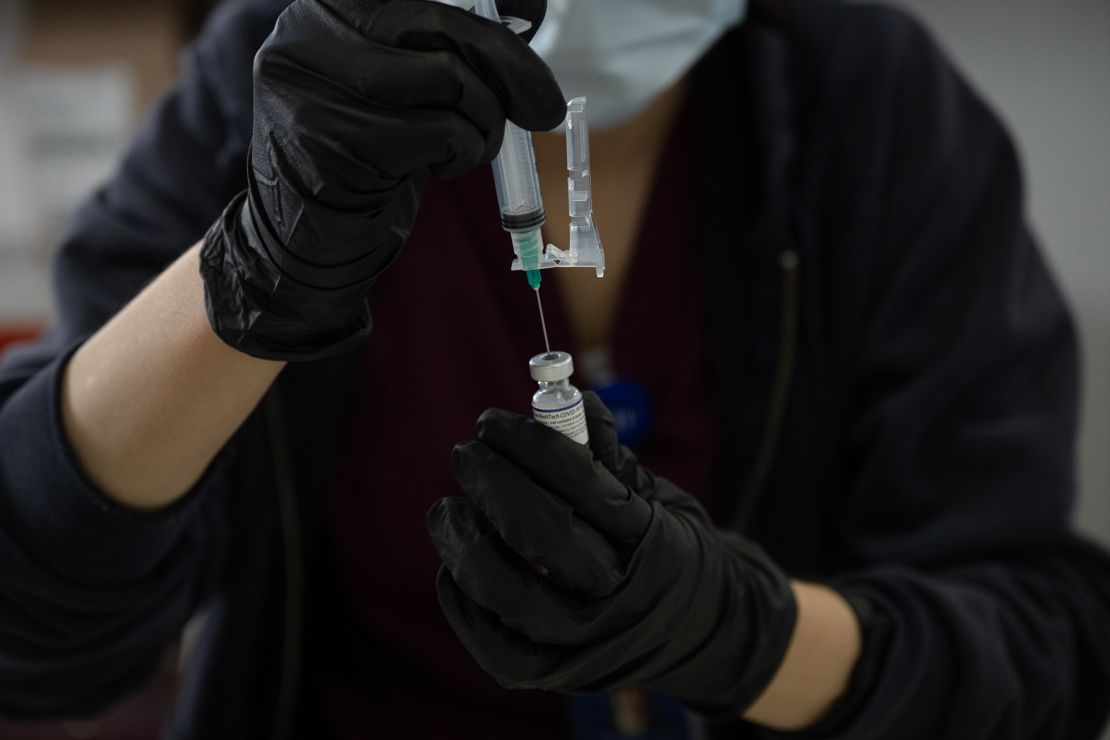
Baghdaserians, who represented the mother in the Los Angeles custody case, says his firm’s Facebook page was flooded with comments – some slamming government overreach – after the Los Angeles Times recently published a story about the judge’s decision. Baghdaserians argued the judge was doing what was in the best interest of the minor child.
“That has been a very, very hot topic. Probably the hottest topic in the United States right now, probably the most divisive,” he says. “I’ve never received so many compliments and so many inflammatory messages.”
Parents are panicking over Facebook posts and travel plans
Covid vaccines aren’t the only pandemic-related issue coming up in custody battles.
In a survey the American Academy of Matrimonial Lawyers conducted of its members last year, attorneys described conflicts over masks, social distancing and in person vs. virtual learning.
“As infections ramp up, so do these issues,” says Cary J. Mogerman, a family law attorney in St. Louis and the academy’s president.
Attorneys say the calmer scheduling conversations that happened during early lockdown days have given way to more urgent matters that keep coming up, like sudden concerns over travel plans or possible covid exposure.
But many issues that parents see as urgent, Kitain says, won’t be seen as urgent by courts already backed up by pandemic-related delays. That leaves lawyers trying to be creative and negotiate outside the courtroom, she says, at moments when emotions are running high and time is running short.
“There’s a lot more quick thinking, practical thinking, late-night phone calls, middle of the night messages, screen shots of text messages talking about these things – (a client saying) ‘I saw them on Facebook at an event with 56,000 people and the kids aren’t wearing masks. Look at these pictures.’”
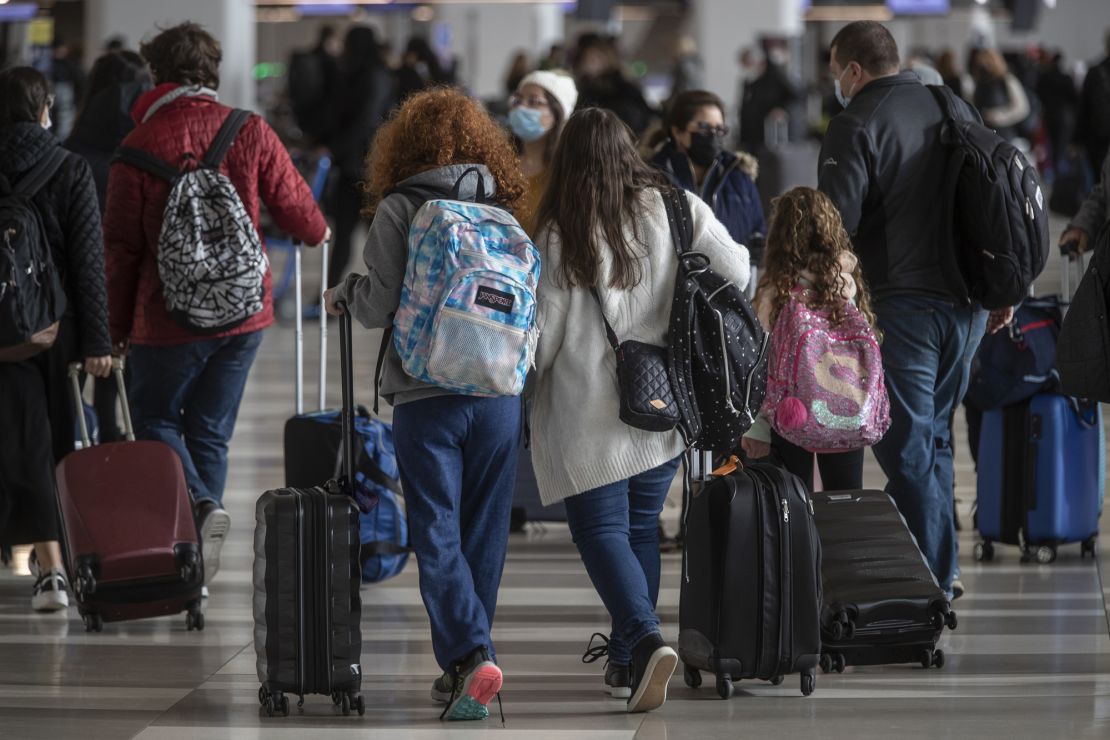
Families that had come to agreements over what safety protocols to follow in the past are now seeing those agreements fracture, she says.
“I feel like we’re back in March of 2020. It’s polarizing. … There are more people that are ready to move on. … They don’t want to go back to protocols. And every single person in the house is vaccinated. So they don’t want to do it,” she says. “And there is another parent that’s like, ‘What do you mean?’”
Natalia Wilson, a family lawyer in Washington who also practices in Maryland and Virginia, says travel has become a big point of contention for several of her clients. One desperately wanted to take her child on a once-in-a-lifetime family trip, but couldn’t get the other parent to agree because of Covid fears.
Another client, she says, learned her daughter had been exposed to Covid while visiting her father, but the father wouldn’t agree to testing or quarantining with her before putting her on a plane back to home.
“There were just so many battles over when to exchange, when to share information, when to test, who should be the first to know. They couldn’t get on the same page at all over what to do with this little person, which is sad because she got caught in the middle, because there were two very different approaches about what staying safe meant,” Wilson says.
But in some cases, there’s a silver lining
These days, attorneys say tense divorces seem to be getting even more hostile, with Covid adding fuel to the fire. And custody battles can be fierce. But there’s also a flip side: Some divorced parents, they say, are actually doing a better job of working together.
Backlogged courts have forced parents to resolve more issues through arbitration, says Elizabeth Lindsey, a divorce lawyer in Atlanta and past president of the matrimonial lawyers’ association.
“There are parents that are getting along more than they ever have, because maybe they’re relying more on each other,” says Kitain, the Philadelphia family law attorney. “Some people were forced to work together. Some people maybe got more custody than they ever had, because for the first time since the separation, during quarantine they’re with their child for two weeks.”
Wilson says she saw many clients come up with creative solutions to handle virtual school. And in one case, she saw parents who’d been fighting for months in an acrimonious divorce hearing come together in an unexpected way.
Their last divorce hearing took place on Zoom. They were sitting in separate rooms of their house, in front of separate computer screens, until technical difficulties prevented one of them from signing in.
Before long, they were both sitting side by side in the same room, providing testimony – their faces together in one rectangle on the screen.
It was a sight Wilson says she never expected to see – and a reminder that even in the most contentious cases, parents can still find a way to work together.
